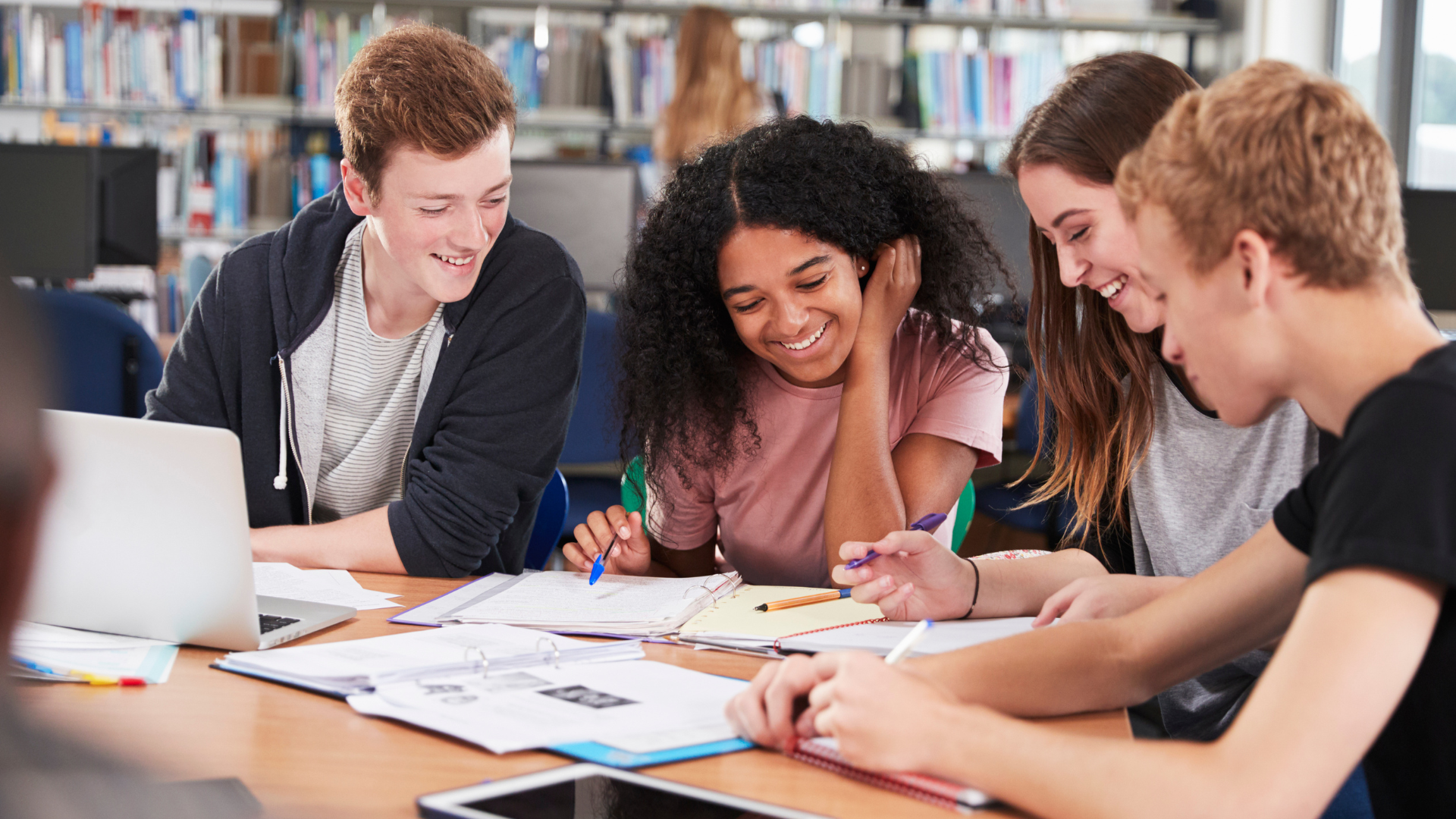
Blog
The Benefits of Project-Based Learning for K-5 Elementary School Students
Discover the transformative power of PBL in K-5 education in our latest blog. We explore how PBL not only aligns with the developmental needs of young learners by fostering critical thinking, creativity, and collaboration, but also enhances their engagement and prepares them for real-world challenges. Learn how PBL equips students with essential skills for the future, making learning hands-on and relevant, and see why educational leaders are turning to this dynamic teaching approach to meet academic standards and inspire a new generation of learners.
How are Project-Based Learning and Traditional Teaching Different?
Learn how PBL transcends traditional classroom methods to foster real-world skills and student engagement. Our latest blog post explores the dynamic shift from teacher-led instruction to a more collaborative, hands-on learning environment. Discover why leading educators and school decision-makers are pivoting to PBL to enhance critical thinking, creativity, and problem-solving among students, preparing them for the complexities of the 21st-century workforce.
How Does Project-Based Learning Improve Student Engagement?
Discover how integrating Project-Based Learning (PBL) in K-12 schools not only enhances student engagement, but also prepares them for real-world success. This educational shift moves beyond traditional rote learning by emphasizing critical thinking, collaboration, and problem-solving skills necessary in today's dynamic world. Our blog dives into how PBL transforms student experiences by making learning more interactive and relevant and connecting classroom teachings to practical applications.
How is Project-Based Learning Used in the Classroom?
Learn how project-based learning (PBL) transforms traditional classrooms into hubs of active, real-world learning. This blog explores how PBL teaches students essential life skills—critical thinking, collaboration, effective communication, and self-management—preparing them for modern challenges. Ideal for school superintendents, principals, and educational leaders who want more dynamic, impactful teaching methods.
4 Ways to Make STEM Classrooms More Inclusive
Discover how project-based learning (PBL) can transform STEM classrooms into inclusive environments that reflect our diverse society. This blog post explores four strategic ways to make STEM education more accessible and engaging for all students, emphasizing the importance of diverse role models, collaborative projects, real-world applications, and proactive leadership in schools.
What is Project-Based Learning and Why is it Important for Students?
Dive into our latest blog where we unpack the advantages of integrating project-based learning (PBL) into K-12 curricula. From enhancing student engagement to fostering essential life skills like critical thinking and collaboration, discover how PBL prepares students for real-world challenges and success beyond academia. Explore the unique benefits across all educational stages—elementary, middle, and high school—and learn how our hands-on approach can make education more dynamic and relevant.
What Are 5 Benefits of Project-Based Learning?
Discover how project-based learning (PBL) is revolutionizing K-12 education. From boosting student engagement to developing critical 21st-century skills, PBL offers a dynamic approach that prepares students for real-world success. Explore the five key benefits of implementing PBL in your school or district and learn why education leaders are embracing this innovative curriculum strategy. Ready to transform your students' learning experience and equip them for the future? Dive into our latest blog post and unlock the power of project-based learning for your school community.
4 Important Skills Project-Based Learning Teaches
Learn how to prepare K-12 students for real-world success with these four important skills project-based learning teaches. PBL can transform the education a student’s classroom experience to make learning more engaging, relevant, and set them up for future achievements. Here’s how PBL instills these skills in students through its projects and how this innovative approach can redefine the education system.
Project-Based Learning: Preparing Students for Success Beyond the Classroom
Find out how Project-Based Learning prepares students for real-world success, fostering essential skills like critical thinking and collaboration. Our latest blog shows how PBL transforms educational experiences, making learning more engaging and relevant for K-12 students, and setting them up for future achievements. Learn about the five crucial skills that PBL instills in students, and see how this innovative approach can redefine educational outcomes.
Unlocking the Potential of Project-Based Learning: A Pathway to Engaging and Equitable Education
Find out how project-based learning enhances engagement in the classroom and ensures equitable learning opportunities for all students. Our latest blog dives into the benefits of Project-Based Learning (PBL), showcasing its ability to connect classroom experiences with real-world challenges and foster essential skills like critical thinking, collaboration, and problem-solving. Learn how PBL not only captivates students' interests but also democratizes education, making learning relevant and accessible to everyone.
Innovate or Stagnate: The Choice Facing Today’s K-12 Schools
As technological advancements reshape our world, K-12 schools face a crucial choice: innovate with project-based learning or risk stagnation. Educational models need to equip students with critical 21st-century skills such as creativity, problem-solving, and adaptability. Discover how transitioning from traditional teaching methods to dynamic, real-world project-based curricula can enhance student engagement, improve academic outcomes, and prepare a generation for a complex global economy.
3 Ways to Increase Your Internal Locus of Control
Feeling like life just happens to you? It's time to shift gears and steer your own course! Our latest blog explores 3 transformative strategies to enhance your internal locus of control, empowering you to become the master of your fate. From rewriting the blame game to taking charge of your future, and embracing failure as a stepping stone to growth, discover how to cultivate a mindset that sees you at the helm of your success.
Embrace the Unknown: 4 Ways to Increase Tolerance for Ambiguity as an Entrepreneur
Discover four unconventional yet effective strategies to enhance your tolerance for ambiguity, an essential trait for any entrepreneur. From venturing into a country where the language is a mystery to you, to seeking out unique culinary experiences without a menu in sight, learn how these experiences can prepare you for the unpredictable journey of entrepreneurship. Our latest blog post on the Entrepreneur Journey curricula dives into why being comfortable with uncertainty can be your biggest asset and how to cultivate this mindset for business success.
Standardized Tests vs. Real-World Learning: Striking a Balance in K-12 Schools
Explore the dynamic intersection of standardized testing and real-world learning in K-12 education. Entrepreneur Pathways champions a balanced curriculum that prepares students for future success by integrating traditional assessments with innovative, project-based teaching strategies. Discover how this approach fosters critical thinking, creativity, and adaptability, ensuring students are not just test-ready but life-ready. Join us in redefining educational excellence for the 21st century.




















